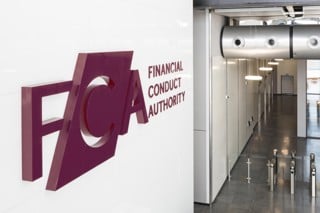One of the things that frustrates an academic more than anything else is when you struggle to find an explanation for something that should on the surface be obvious.
Having studied economics, marketing, customer buyer behaviour and a range of other business disciplines, one is left floundering to explain why the UK car market is doing so well!
To be realistic, the UK economy has just avoided a double-dip recession, unemployment has been rising, consumer confidence has been poor, retail sales have been down and high street chains have been going out of business.
Yet the retail automotive sector continues to defy gravity by continuing to rise.
14.8% April increase in new car registrations
In last month’s AM the headline proclaimed that this was the strongest April car market since 2008. UK new car registrations had increased year on year by 14.8%.
The Financial Times reported that the European car market had risen by 1.7%, primarily as a result of the large rise in the UK and the more moderate rise in Germany of 4%.
It claimed that the rise in Europe was also affected by the fact that there were two extra working days in April by comparison to the same month last year.
All of this seems fine until you try to work out why the UK market continues to show such growth.
Autocar points out that the growth is driven by private consumer demand for innovative fuel-efficient cars.
It is true that the retail sector has led the growth and there appears to be a move to smaller, more efficient cars.
An examination of the 10 most popular new cars in the UK shows that six are in the B-segment, with a move back to petrol-powered vehicles.
However, it is difficult to argue that the Fiesta, Focus, Corsa and Astra are truly innovative in as much as they have been around in their current form for a while and they have been the best-sellers for the last few years.
Of course, more fuel-efficient engines plus road tax incentives will play a part in driving this, but these factors did not have the same impact when the economy first went into decline and the Government was forced to introduce the scappage scheme to give a boost to the industry.
If economic conditions are similar to when schemes like scappage were introduced, what has changed?
Perhaps it comes down to finance and a change in social attitude.
It is interesting to note that there has been a dramatic rise in showroom loans.
In March, showroom- based financial deals were up by 25% year-on-year and advances overall in the first quarter were up 29%.
However, perhaps the most significant impact is the rise in the uptake of PCPs.
The low-cost access to a car via this route indicates an increasing trend that people appear to want access without necessarily having full ownership.
It reminded me of an innovative study undertaken by Toyota in 2006 when at a conference they were trying to predict what Europe would be like in 2015.
There were a number of interesting predictions in the study about the changes in human behaviour.
One of the major ones was the change in attitude towards ageing, with people looking for new experiences as they moved into retirement and prepared to spend on themselves and not necessarily leave it all to the kids.
But one of the other predictions was that people would move away from ownership and be happy to simply have access to items – eg. renting as opposed to buying.
A number of studies have suggested that this attitude is becoming the norm across a range of age groups. Whereas people of my age would maybe take pride in a CD collection the younger generation would happily download (legally or illegally) if they wanted to listen to a piece of music.
With the rise of ebook readers the stacked shelves of dusty books in the spare room reflects an age that is now passed.
Why is the UK car market so healthy?
Maybe we are actually at a time when we are facing a perfect wave of forces coming together for our benefit.
Increased fuel prices and tax disc incentives are forcing people to rethink the type of car they drive.
Interest rates are low and manufacturers and dealer groups are able to put together financial packages that demonstrate a lower cost of use.
But possibly, and more importantly, this is coupled with a change in consumer perception that owning something is not as important as using it.
This attitude is giving the UK consumer confidence to come into car showrooms and drive out new cars while across Europe uncertainty and a lack of consumer confidence is continually fuelling decline.



















bonzo dog - 18/07/2013 14:36
I'm not going to disagree with Prof Saker as to what is happening but I will as to why. The increase in PCP is largely due to it now being sold by dealers and perceived by customers as a method of ownership rather than rental. It is true that for many years PCPs were sold as "it's like a lease; business users do this so it makes sense for you too, Mr Private Customer". But this is why it never took off, as people want to own their car. HP is sold a method of ownership & so now PCP is as well "but it's better than HP because you have a greater choice of deposit & monthly payment; plus at the end of the agreement you have a number of options you don't have with HP" Aligned to this is the obvious - customers can buy a new car for the same (or less) deposit & monthly payment than a used car & manufacturers have finally cottoned on to offering low rate finance on PCPs